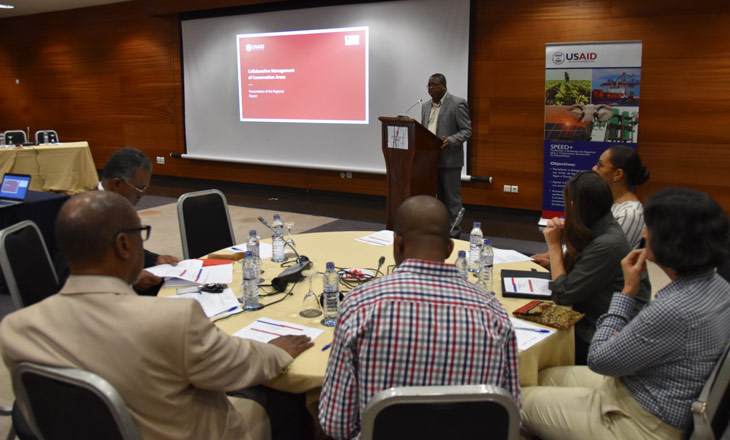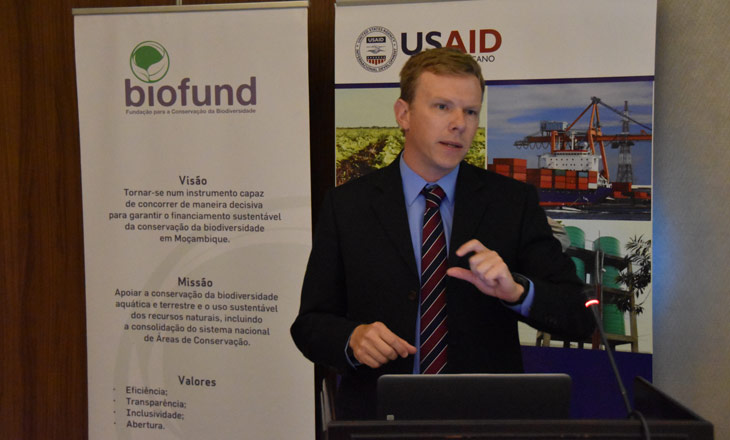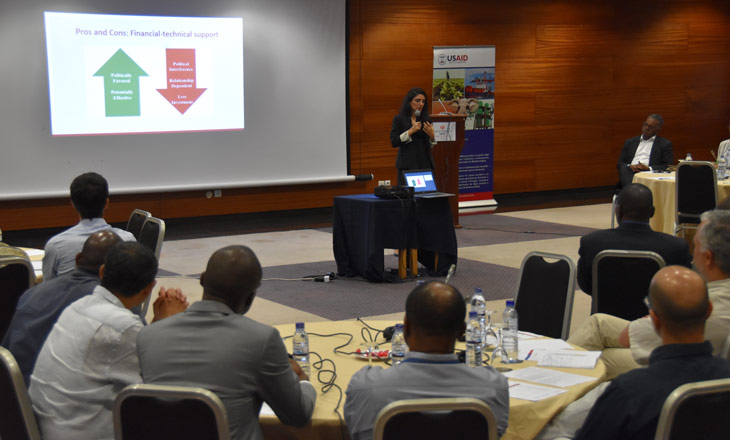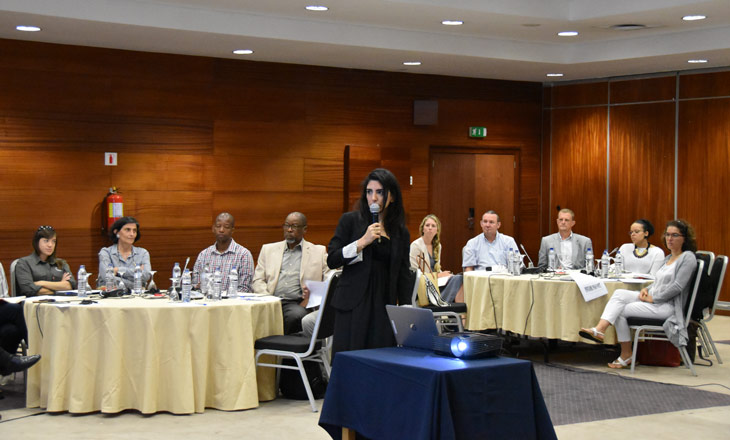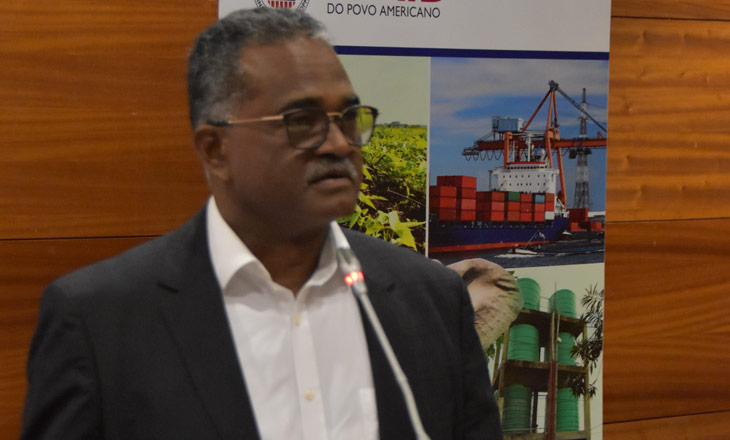The Government of Mozambique has long recognized partnerships as a key feature of its conservation strategy. Over the last 20 years, Mozambique has therefore been a pioneer in the development of collaborative management partnerships as a strategy for improving management in conservation areas.
Updated at 29/10/2018
Study of Management Models of Protected Areas
In 2017, with the support of SPEED+, and in collaboration with the World Bank, ANAC, and other partners, BIOFUND engaged a consultant team to carry out a three-part study:
- Perform a regional review of collaborative management partnerships in protected areas in Africa—including identifying the main models, evaluating their respective pros and cons, and drawing lessons learned for improved governance and management;
- Assess collaborative management models in Mozambique, including significant current and past partnerships, in order to take stock of Mozambique’s experience and draw important insights and lessons learned for the future; and
- Develop a strategic framework and roadmap to help guide and improve partnership models and practices in Mozambique’s CAs.
The aim was to facilitate improved understanding of these partnerships in order to develop a clear, strategic framework for the next 20 years of collaborative management in Mozambique—one that learns from both local and international experience and therefore enhances the governance, management, and ultimately the performance of CAs in Mozambique.
The consultancy was carried out by two international specialists who had already done a similar analysis for the Southern African region, Peter Lindsey, and Mujon Baghai. Over the course of 2017 a series of consultations were carried out with a wide variety of key stakeholders in the field of conservation in Mozambique, including three public workshops (on July 25th and December 14th, 2017, and a final presentation on the 7th of February, 2018). A small Guidance Committee, made up of government, NGO, and co-management partners in Mozambique was set up after the first public consultation and then reviewed in detail all the products produced. The process also included several meetings of the consultants directly with the Minister of Land, Environment, and Rural Development.
The final report, available now for download here, have helped shape the dialogue on co-management in the country, as can be seen by the emphasis placed on this aspect in the recent international conference on Tourism and Conservation, hosted by MITADER in Maputo in June 2018.

